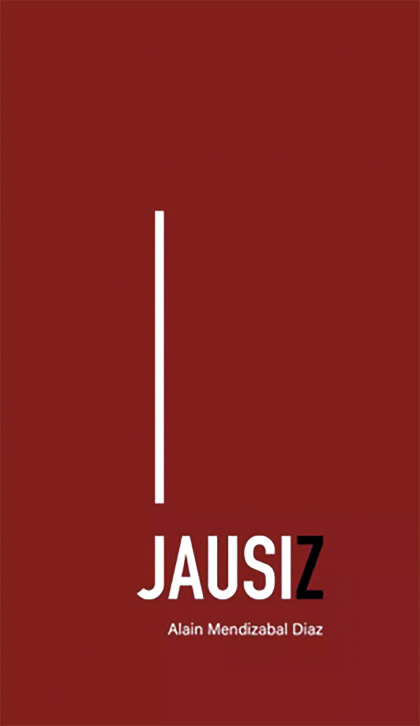

Editorial
JAUSIZ Alain Mendizabal
Diaz 1545, 2023
---------------------------------------------------
It seems that it is difficult for us to stop keeping upright and falling down, even though both the force of gravity and the load of what we carry attracts to the ground. But finding the fund is a matter of time. Alain Mendizabal Diaz (Oiartzun, 1997) presents the poems collected in the book Jausiz (Editorial 1545, 2023) as a result of the recognition of vulnerability. So far he has worked on several musical projects and has always had the floor as a travel companion. This is the first collection of poems he's published, which is part of the edges of the eyelid and takes us to the sea.
In addition to gathering nineteen poems and a Bitakora epilogue distributed in different sections, the artifact consists of illustrations by its compatriots Amaia Belaunzaran Sanz, Ekhine Irazusta Arozena and Karen Muñoz Etxebeste. In general, on these pages stands the imaginary linked to the body, to the earth and to the water, as well as the poetic self that, to put it another way, tries to go beyond looking at itself: either the one in front of the mirror or the one who looks at the peers. In this way there are plenty of topics that poems bring us, but those that talk about falling or crying and, therefore, of some pain stand out. Also noteworthy are poems directed at a second person that I'm not a person because I'm poetic. We can say that the poem Emari is an example of this and the recognition of the vulnerability mentioned above: “I fear for your consequences / the arrogant waves you bring,” she says to tears.
It should be added, however, that these words are not a mere count of the fall. Through the dogmas and anchors of the tides of the Bitácora section, which collects the details of navigation, the sense that the book gathers and rounds off is recognized, that is, the study of masculinity is put into the world and a strict dissection is made with it. So, Oiartzun's is an invitation to stop following the paths already drawn and try others: “We have taken an uncoordinated direction / leaving behind the sea / looking for new rivers.” That is, an invitation to leave old maps and draw new paths.